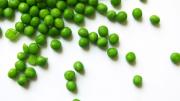Neil J. Smelser ’52, Ph.D. ’58, JF ’58, is an acclaimed sociologist and scholar of higher education, at Berkeley and the Center for Advanced Study in the Behavioral Sciences. (In the latter capacity, he advised Dean Drew Faust on the new Radcliffe Institute’s role and structure.) His Reflections on the University of California (California, $45) would be an ideal gift for President Faust and Corporation members, Overseers, deans, or department chairs, for its lucid, enduring 1994 essay on governing that institution. Turns out he is also a wicked satirist: the “Thanksgiving Dinner Report,” a 1977 mock memo on serving the meal to study-abroad students in England, was written, he observes, “to poke fun at the academic-bureaucratic mentality of university life.” Herewith, an unseasonable excerpt, beginning with wisdom from Ruth Eigner, a predecessor:
Perhaps her most important piece of advice concerned the issue of green peas. She warned, “avoid serving green peas.” Upon being pressed for reasons she said that green peas have a way of falling off plates, and that they fall between things. The main things they fall between, moreover, are students’ shoes and the carpet. This suggestion made good sense to all of us, except Alan Nelson [associate director], whose house has a carpet that is pea-green in color. He forcefully presented the argument that it was in his house that the green peas were going to be served, and if crushed they would not show on his carpet. He actually went so far as to suggest that crushed green peas might be of some organic value to the carpet…. After weighing the arguments, I ruled against green peas. As a matter of fact, I was sufficiently impressed with Ruth Eigner’s advice that I submitted to the staff the idea of imposing a general size limitation on things served, thinking, perhaps, that no single item should be smaller than an American-size golf ball. This idea proved overdrawn, largely because it was too restrictive. It would, for instance, have ruled out carrot sticks and sliced cucumbers, which proved to be a refreshing change from the diet of overcooked vegetables that our students had been eating in various universities’ dining halls.…
You should also be aware of the paper plate problem. I do not want to appear critical of the British paper manufacturing industry, but I have to say that paper plates are not their forte.…
Actually, working on the paper plate problem served to deepen my thinking on the issue of green peas. After considering the matter carefully, I have decided that it is not completely fair to claim that green peas, as such, constitute the problem. To think that way is to penetrate the issue only superficially. Rather, it is when you begin to think of green peas in combination with soggy paper plates that you advance toward grasping its essence. In fact, I would put the primary onus on the plates rather than the peas; almost anything would fall off those plates. When you move beyond thinking about green peas alone, in short, the green-pea issue itself becomes much less significant and pressing. I thought I would pass this insight on to you, so that you might share it in the future with directors-elect and their spouses.








